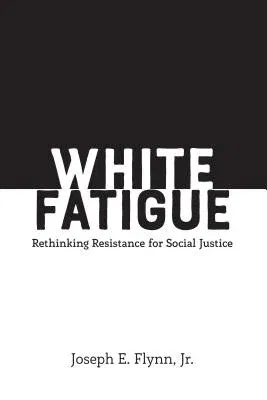Joseph E Flynn Jr
(Author)White Fatigue: Rethinking Resistance for Social JusticePaperback, 31 May 2018

Qty
1
Turbo
Ships in 2 - 3 days
Only 4 left
Free Delivery
Cash on Delivery
15 Days
Free Returns
Secure Checkout

Part of Series
Social Justice Across Contexts in Education
Print Length
178 pages
Language
English
Publisher
Peter Lang Inc., International Academic Publishers
Date Published
31 May 2018
ISBN-10
1433158957
ISBN-13
9781433158957
Description
Product Details
Author:
Book Format:
Paperback
Country of Origin:
US
Date Published:
31 May 2018
Dimensions:
22.61 x
15.24 x
1.27 cm
Genre:
Urban
ISBN-10:
1433158957
ISBN-13:
9781433158957
Language:
English
Location:
New York
Pages:
178
Weight:
272.16 gm